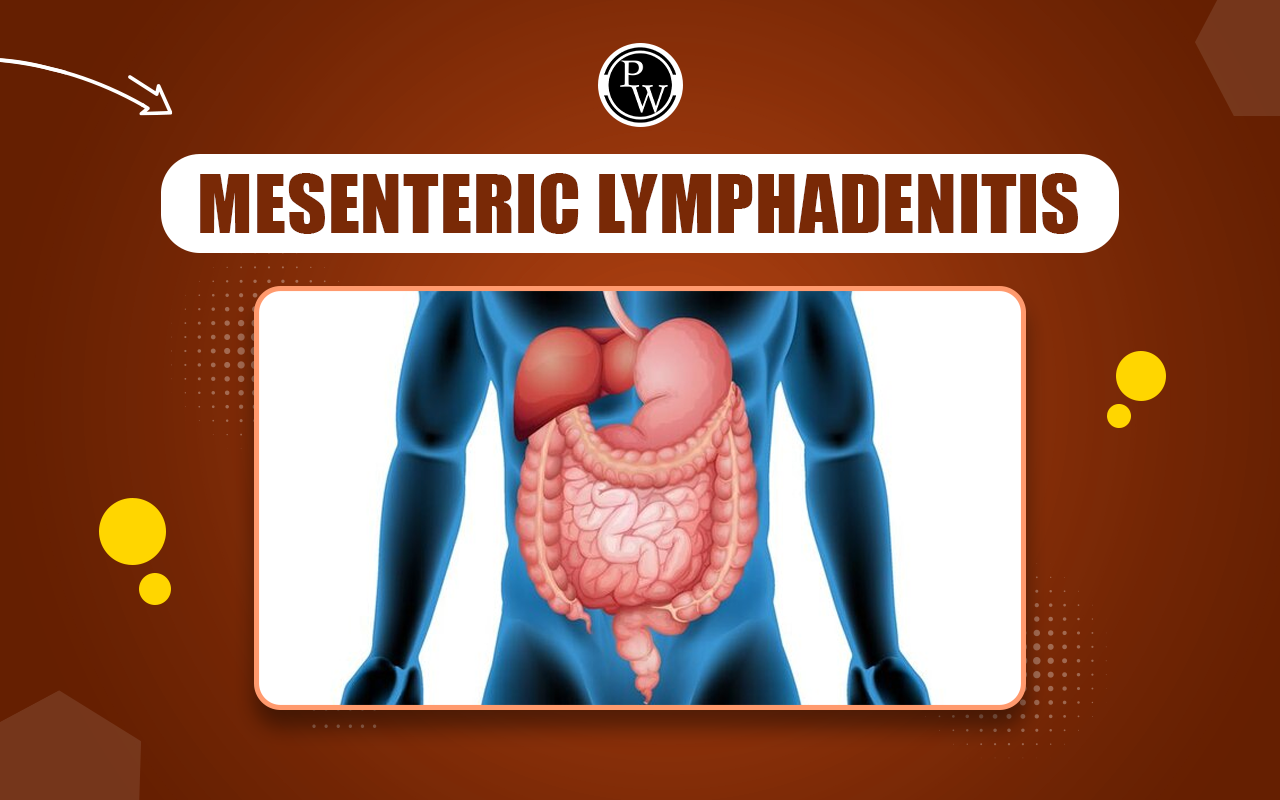

Mesenteric Lymphadenitis: An Inflammation of Mesenteric Lymph Nodes. Lymphadenitis is a condition in which the small round or bean-shaped clusters of cells, called lymph nodes, become swollen and inflamed. The swelling can affect the lymph nodes in the membrane that connects the bowel to the wall around the stomach area, called the mesentery. Then the condition is called mesenteric lymphadenitis.
Visit – MedEd App
Read More - Pharyngeal Arches
Etiology
The most common cause of mesenteric lymphadenitis is a viral infection, such as gastroenteritis. Gastroenteritis is often called stomach flu. This infection causes inflammation and swelling in the lymph nodes in the thin tissue that attaches the intestine to the back of the wall around the stomach area, called mesentery.
Other causes of mesenteric lymphadenitis include bacterial infection, inflammatory bowel disease and lymphoma.
Bacterial Causes
Bacterial infections like cat scratch disease and Helicobacter pylori can cause mesenteric lymphadenitis. The cat scratch disease is a rare infection. When a cat licks a person’s open wound or scratches or bites a person harsh enough to break the skin of the person. It can cause infection. The bacterial infection passes through the cat’s saliva. The infected area will be swollen with red rounds. This can be assisted with lesions and pus. Bartonella henselae is a gram-negative bacteria that causes inflammation in the lymph nodes and leads to mesenteric lymphadenitis.
Viral Causes
Mesenteric lymphadenitis is commonly caused by viral infection. Stomach flu or gastroenteritis causes inflammation of lymph nodes. Mesenteric lymphadenitis caused by viral infection is called mesenteric adenitis. Viral infection like tuberculosis and HIV also causes inflammation in the lymph nodes. The common symptoms will be tender and red skin over the lymph node and fever.
Read More - Radiodiagnosis
Symptoms and Signs
Most symptoms of mesenteric lymphadenitis are confused with appendicitis. Pain in the abdomen is a common symptom of mesenteric lymphadenitis caused due to inflammation in the lymph nodes.
The tenderness in the abdomen is due to inflammation in the lymph nodes.
Sometimes people infected with mesenteric lymphadenitis may have fever assisted with chills. Nausea and vomiting are less common. Since mesenteric lymphadenitis is an intestine-related disease, nausea and vomiting can be common. Diarrhea can be caused by severe conditions of mesenteric lymphadenitis. People affected with mesenteric lymphadenitis sometimes have a loss of appetite , which can lead to weight loss.
Read More - Pelvis and Perineum
Diagnosis
Diagnosing mesenteric lymphadenitis involves taking a medical history and doing an exam. Tests might include:
Blood tests. Certain blood tests can help show if there's an infection and what type of infection it is.
Imaging studies. An ultrasound of the stomach area is often used to diagnose mesenteric lymphadenitis. A CT Scan of the stomach area also might be used.
Mesenteric lymphadenitis FAQs
What’s the role of inflammatory markers in diagnosing mesenteric lymphadenitis?
What is the complication of mesenteric lymphadenitis?
Why is aspirin avoided in children with viral fever?
What is the role of IBD in mesenteric lymphadenitis?












